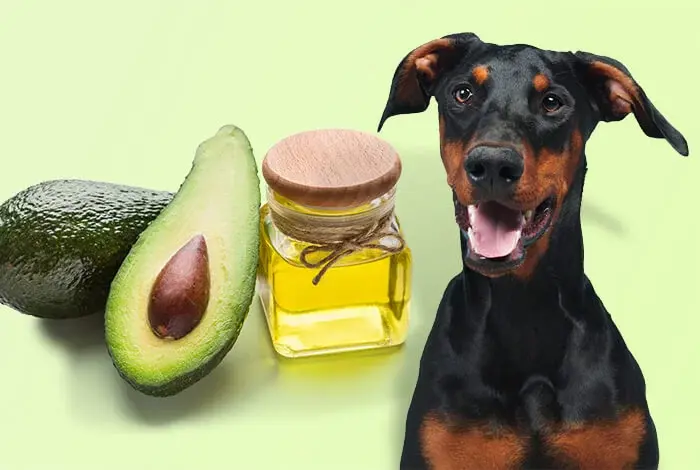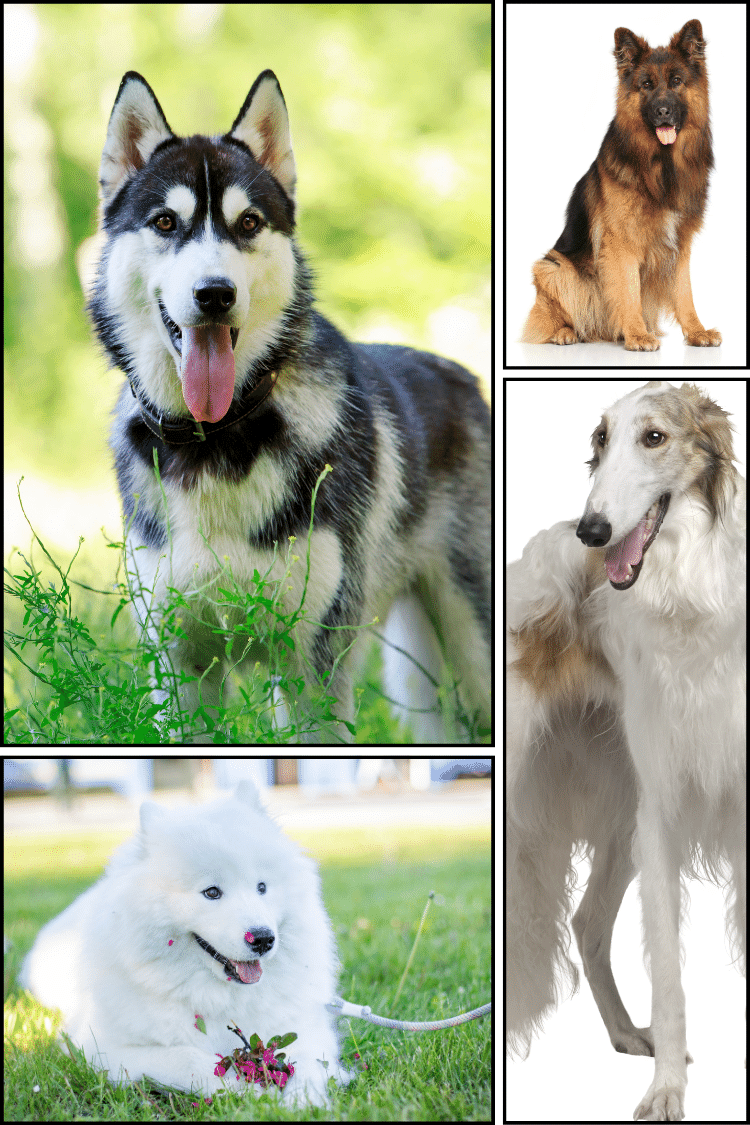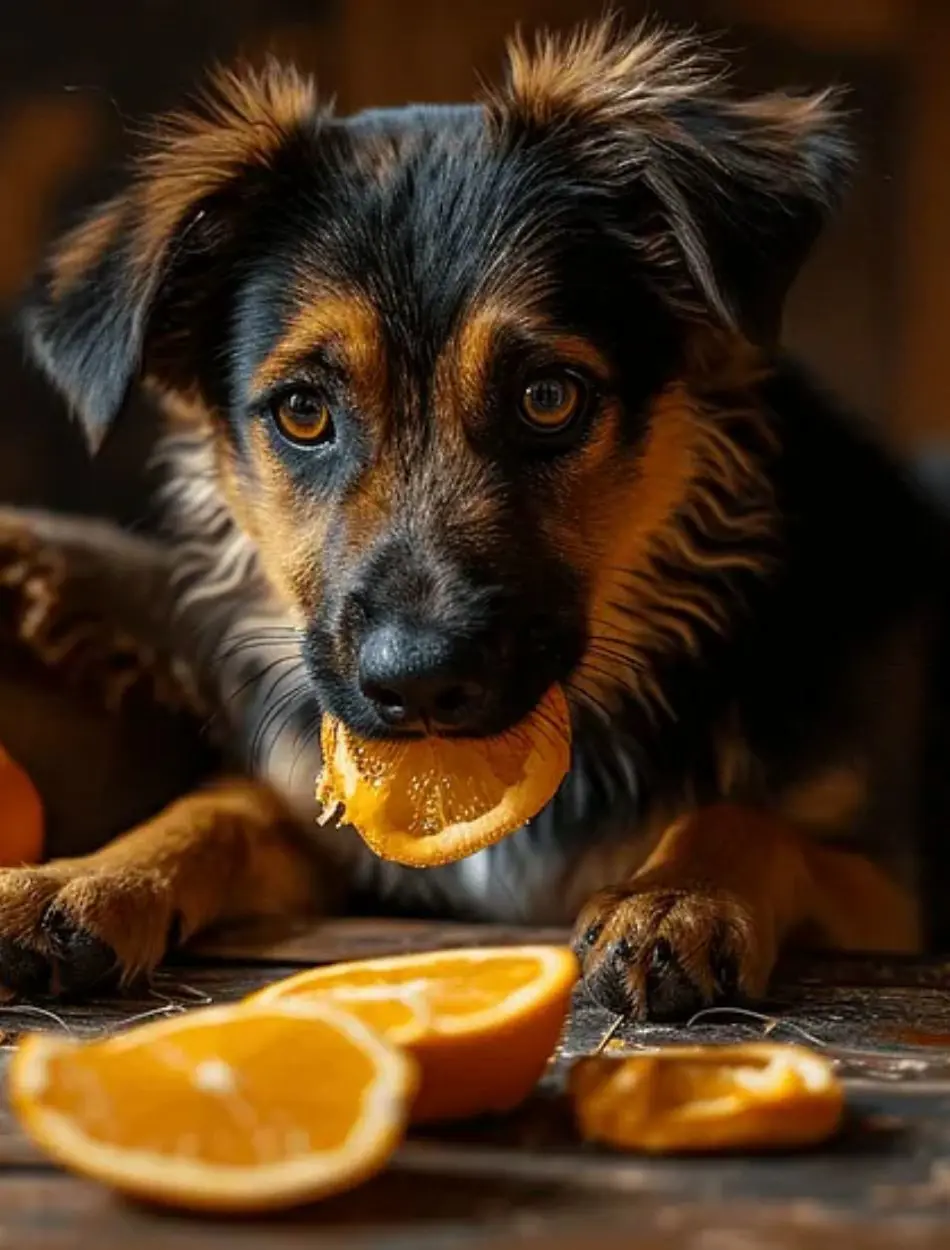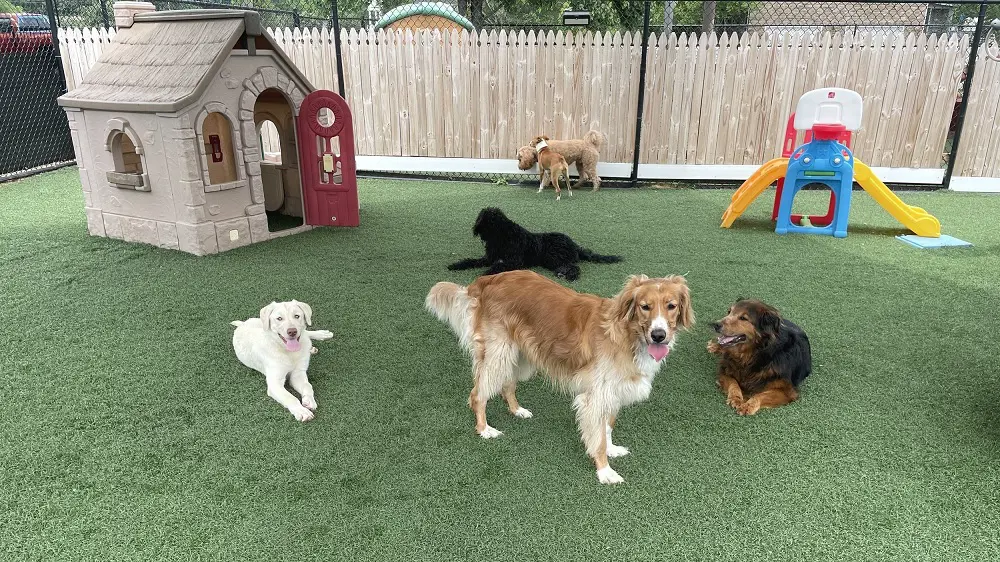South African Mastiff (Boerboel) Dog Breeds
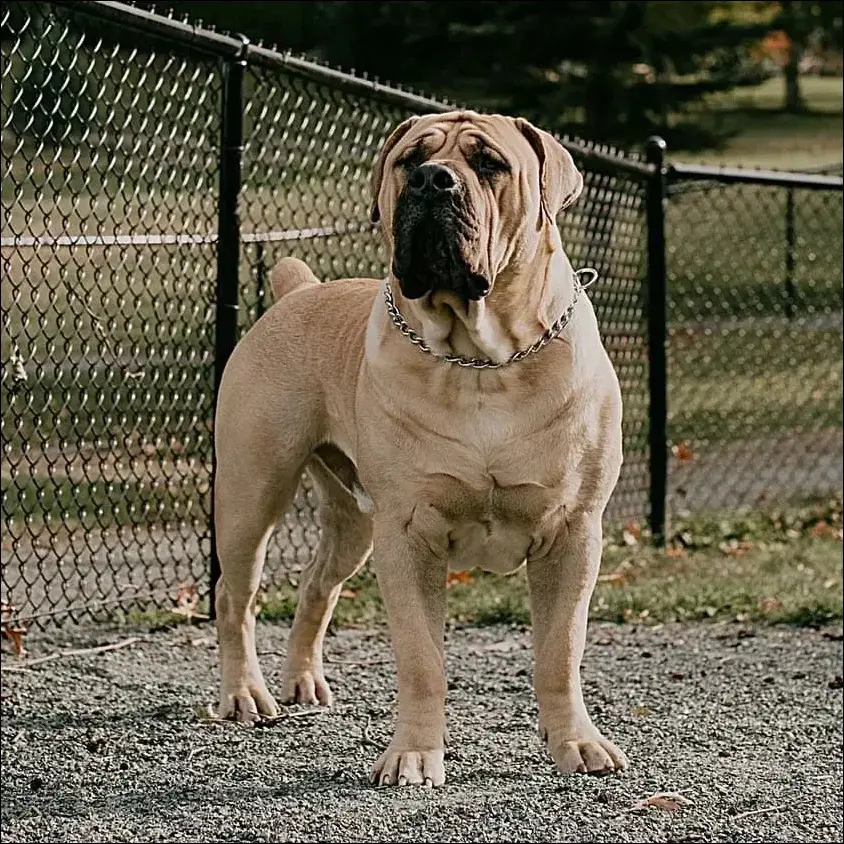
The South African Mastiff, commonly known as the Boerboel, is a large and powerful breed that originated in South Africa. You may get confused with its bulldog-type face, but the Boerboel's distinctive features define its character and capabilities.
As of today, Boerboels are pets for a diverse range of individuals and families worldwide. Their gentle demeanor and strong bond with owners also make them beloved household members.
They continue to serve as effective guard dogs for properties, farms, and livestock, attracting owners who prioritize security.
An Overview Of The Breed
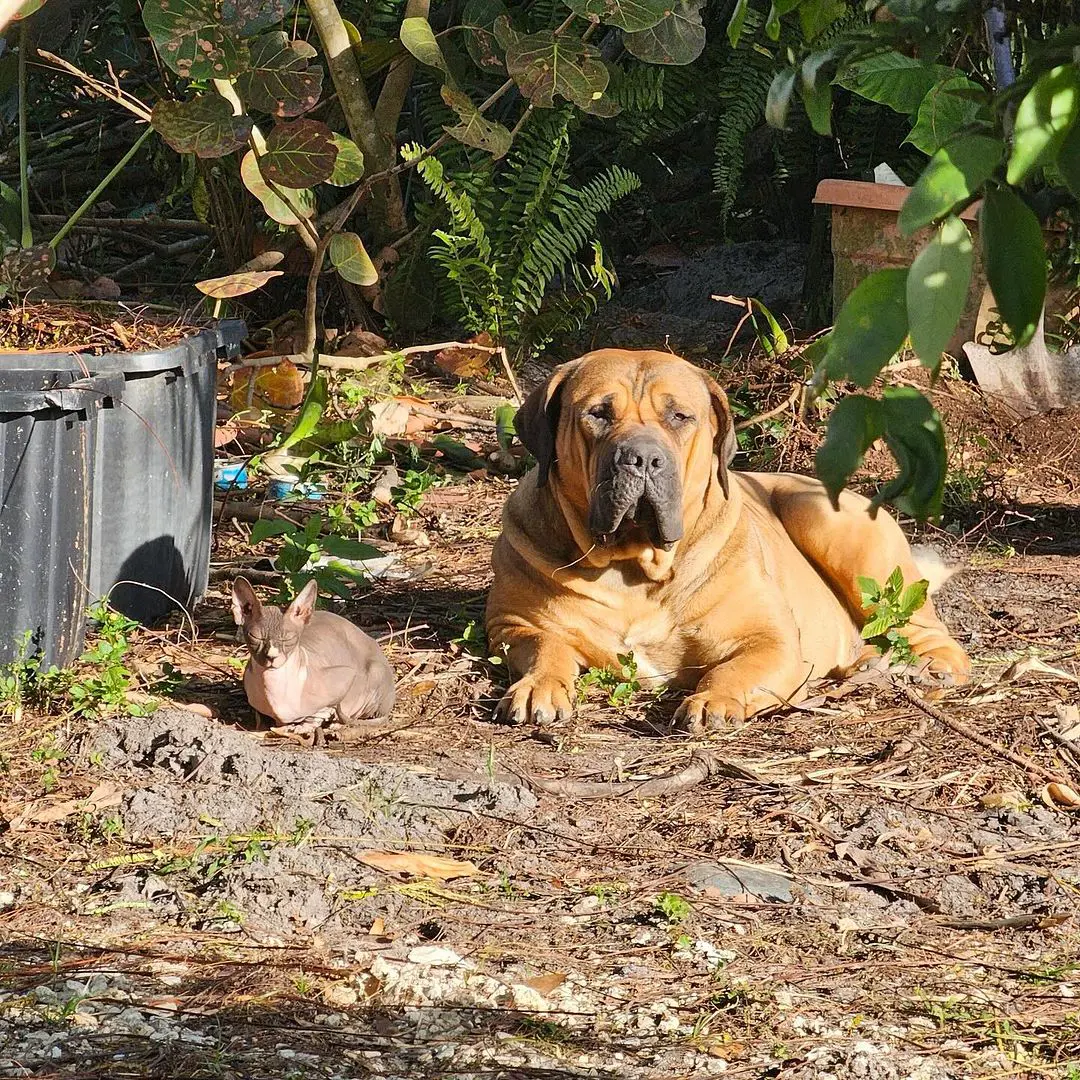
Origin: South Africa
Grouping: Working
Size: Large
Height: 23 to 27 inches
Weight: 150-190 lbs
Coat: Short, Dense
Coat Color: Brown, Brindle, Creamy, Tawny, Fawn and Red
Temperament: Loyal, Protective, Gentle, Strong Guarding Instinct
Life Span: 9 to 11 years
History And Origin
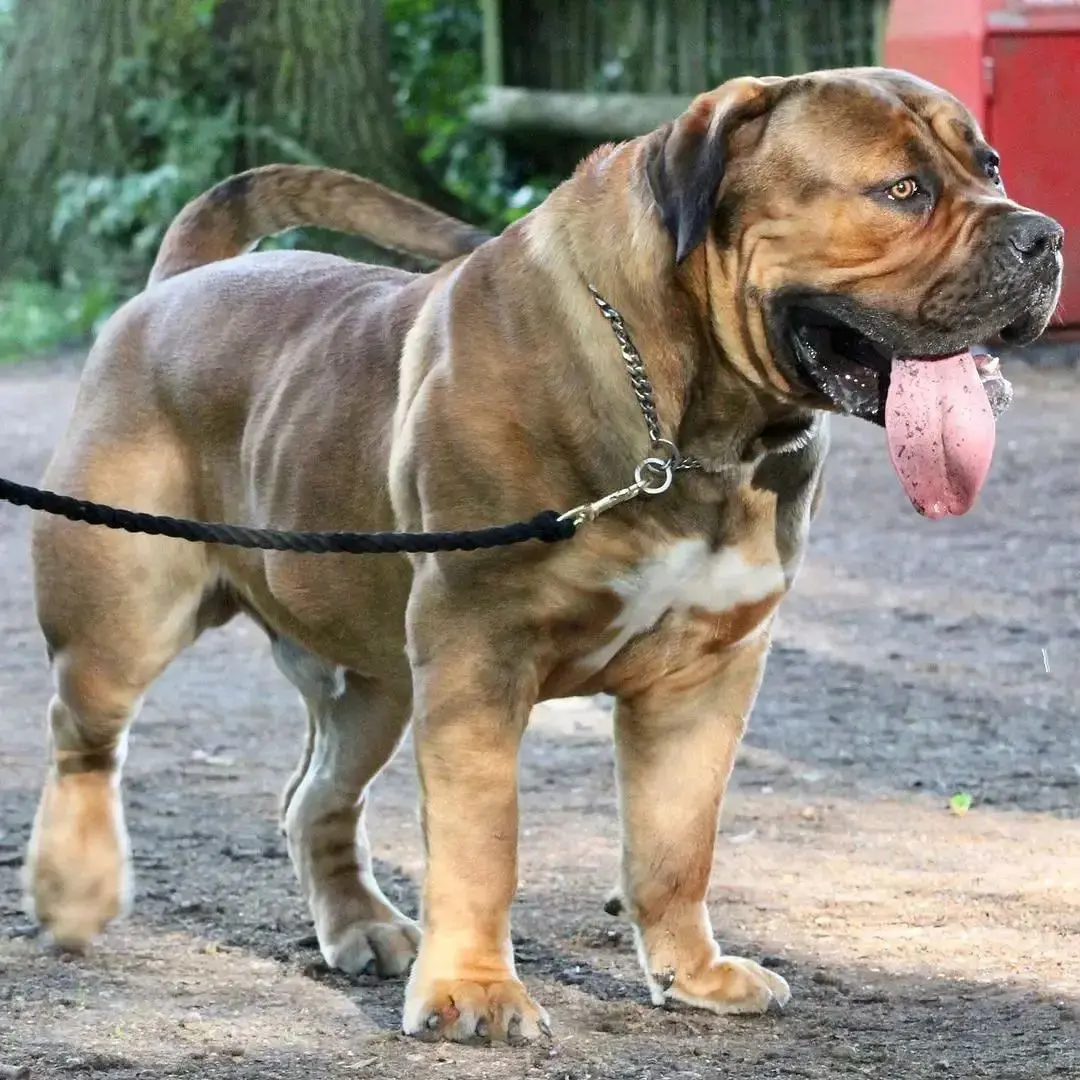
The history and origin of the South African Mastiff can be traced back to the 17th century when European settlers arrived in South Africa. These settlers brought large working dogs(mastiff-type) with them which were crossbred with indigenous African dogs, creating a breed that could adapt to the harsh conditions and unique challenges of the region.
Over time, this selective breeding resulted in the development of the Boerboel, a powerful and versatile farm dog. The name "Boerboel" is derived from the Afrikaans words "boer", meaning farmer, and "boel", meaning bulldog. Therefore, Boerboel translates to "farmer's dog" or "farm dog".
Boerboels As A Working Dog
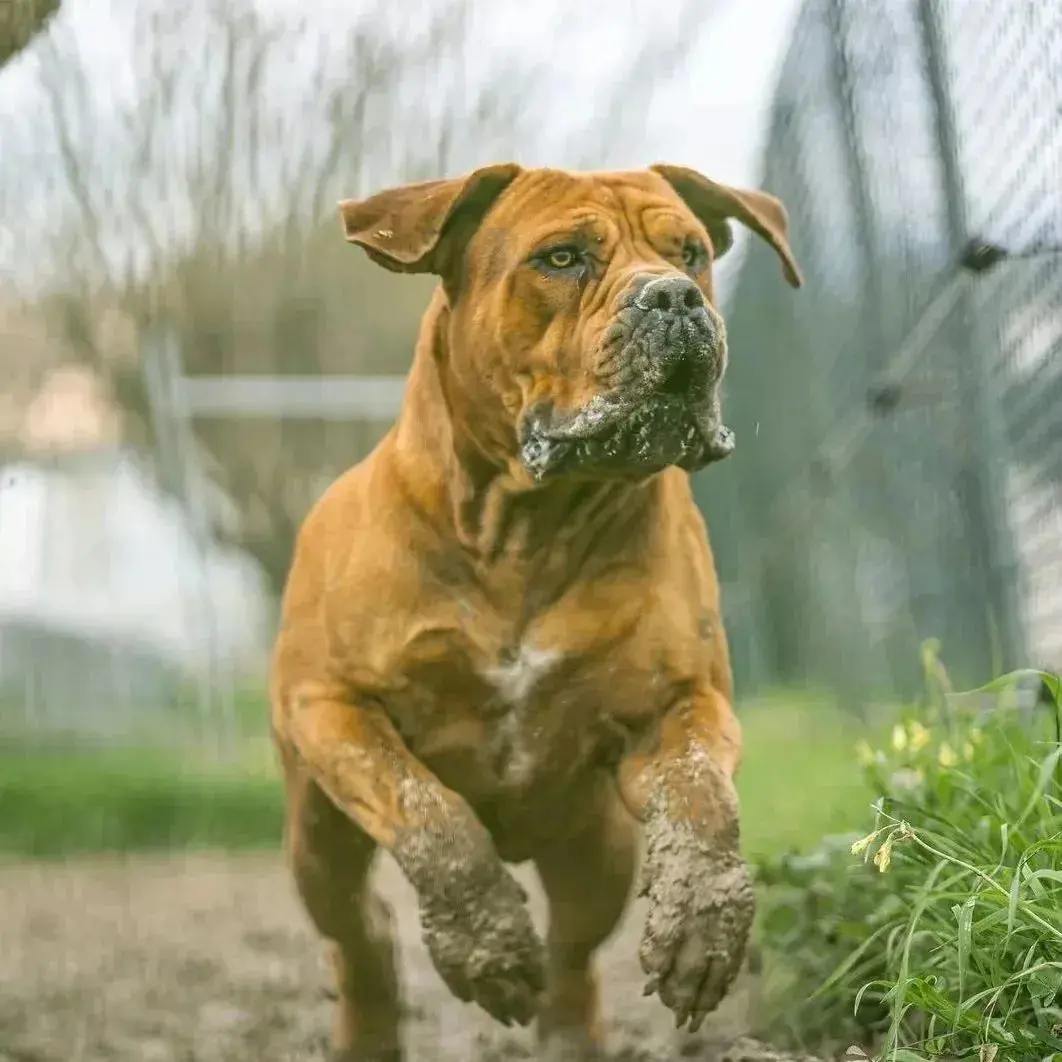
Boerboels have a rich history as working dogs, deeply ingrained in their role as versatile and reliable companions on South African farms. Originally developed to meet the demanding needs of European settlers, these dogs were selectively bred for their strength, intelligence, and protective instincts.
Here are some key aspects of their use as working dogs:
Guardians of the Homestead: Boerboels have a natural inclination to protect their territory and loved ones. As guardians of the homestead, they are known for their vigilance against potential threats. Their imposing presence and keen sense of awareness make them effective deterrents to intruders.
Livestock Protection: One of the primary roles of Boerboels on farms was to protect livestock from predators. Their fearlessness and courage in confronting larger animals, such as lions and hyenas, make them exceptional guardians.
Working Companions: Boerboels are not merely guard dogs; they are also reliable working companions. They are adaptable to various tasks on the farm from herding livestock to assisting with other agricultural activities. Their cooperative nature and willingness to work alongside humans have endeared them to farmers as indispensable partners in daily chores.
Versatility in Farm Work: Beyond their protective and herding abilities, Boerboels have demonstrated their versatility in pulling carts, carrying loads, and assisting with tasks that require physical strength and endurance.
Distinctive Physical Traits
Boerboels are characterized by distinctive physical traits that contribute to their formidable and impressive appearance. Here are some key features that distinguish the breed:
Bully Head Type or Mastiff Head Type
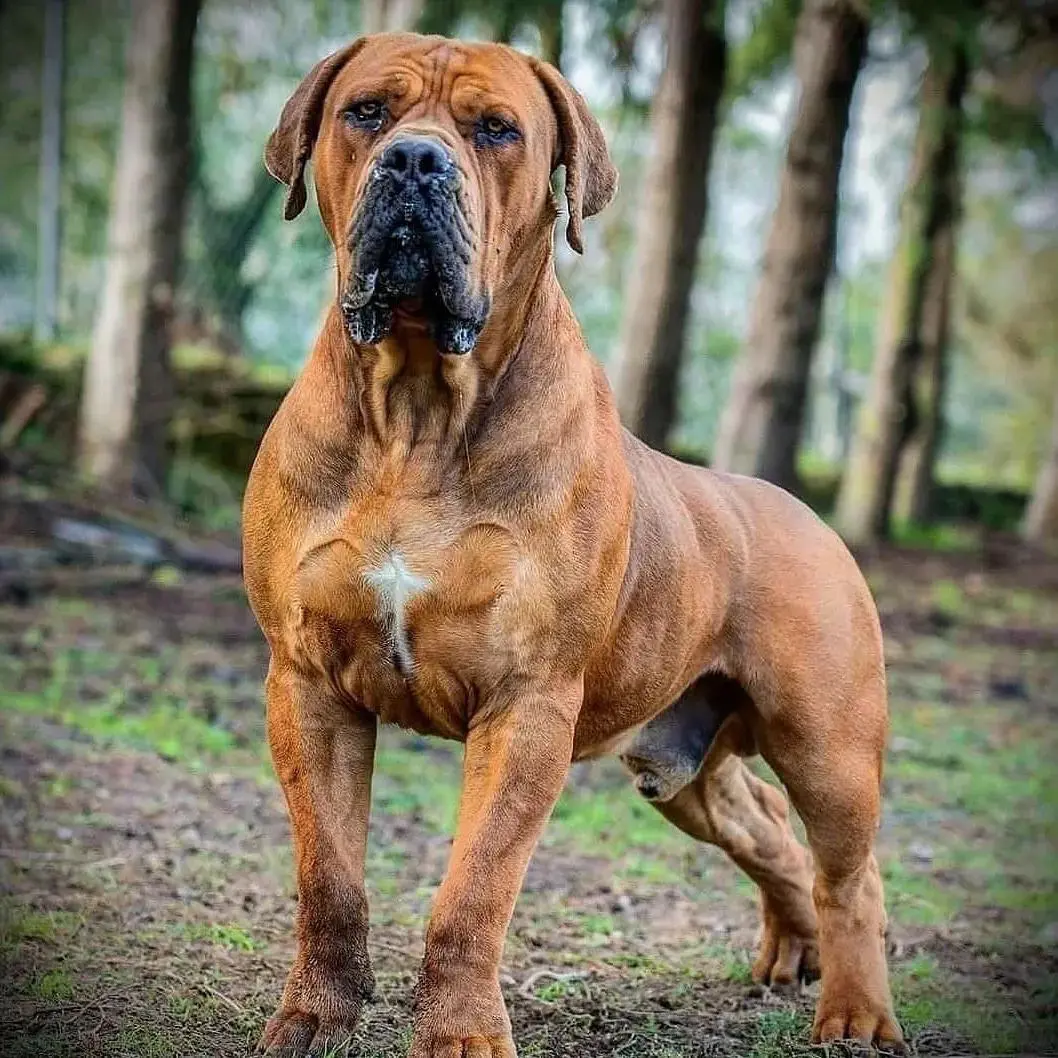
In the context of Boerboels, there are two recognized head types: the "Bully" and the "Mastiff". The "Bully" head type is characterized by a more pronounced forehead furrow that contributes to the breed's intense and alert expression. The muzzle is broad and powerful, with a well-defined stop.
The "Mastiff" head type is characterized by a broader and heavier head, with a less pronounced forehead furrow compared to the Bully type. The muzzle is still broad and powerful, and the head has a more rounded and massive appearance.
Boerboels Are Large, Strong And Muscular
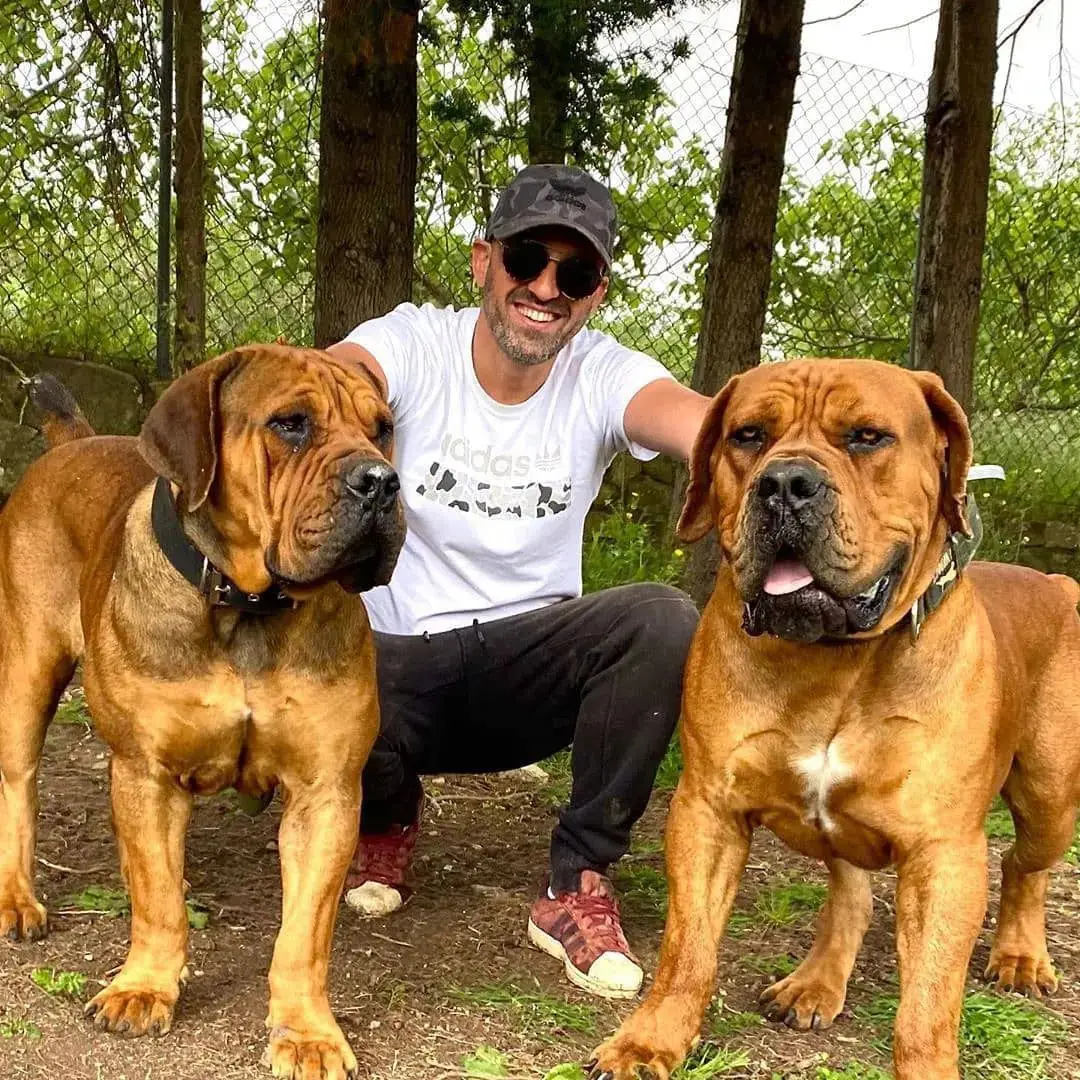
Boerboels are renowned for their impressive size, strength, and muscular build. One striking feature of Boerboels is their sheer size. Adult Boerboels typically stand tall and exhibit a robust frame that immediately commands attention.
Their strength is another notable trait. Boerboels boast powerful muscles that contribute to their overall robustness. This breed also boasts a broad and powerful chest that contributes to its physical prowess by providing a solid and stable base.
Boerboels Have Dewlap On Their Neck
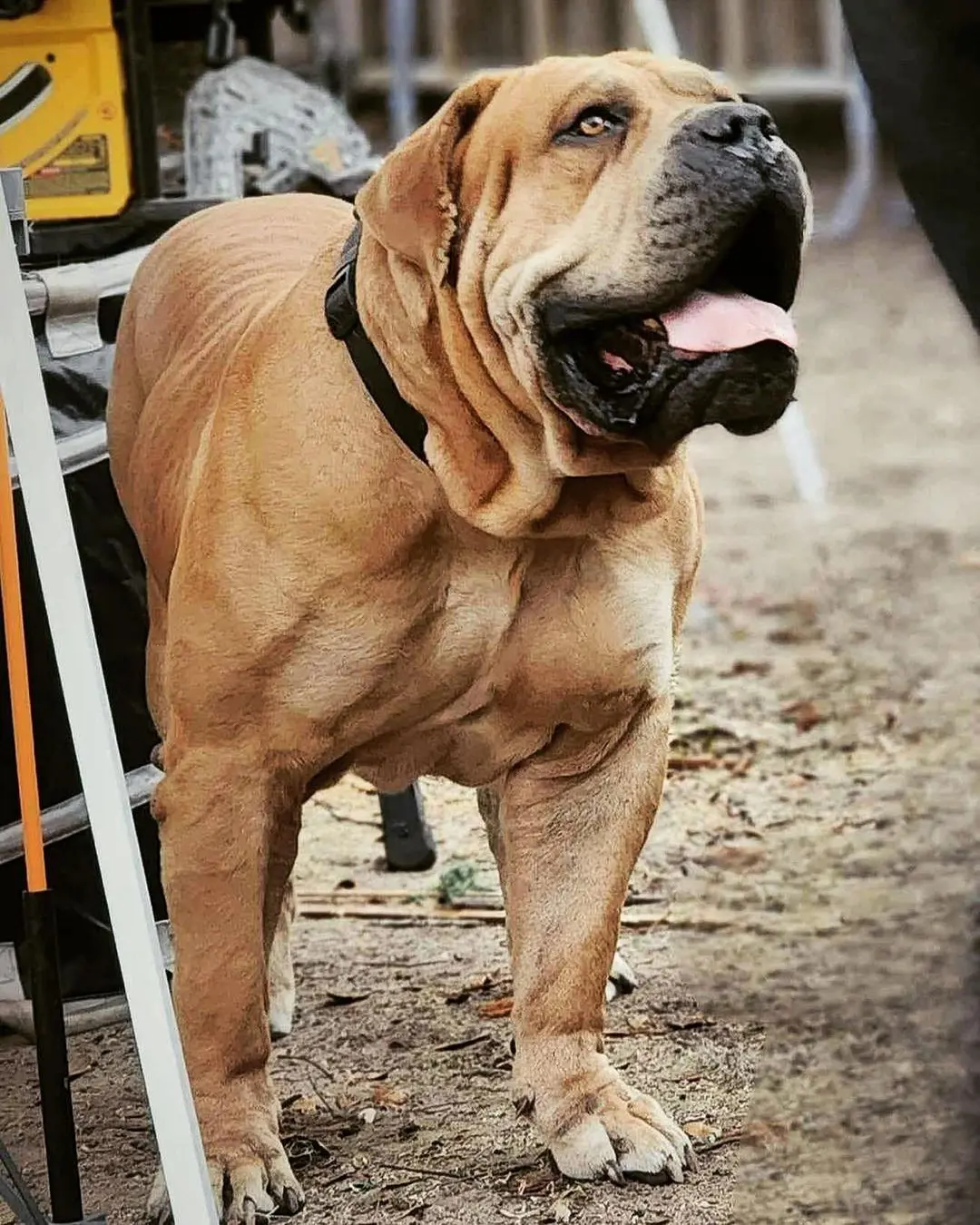
Boerboels typically have a dewlap, which is a loose, hanging fold of skin beneath their neck. The dewlap is not just a cosmetic feature; it serves a functional purpose. The dewlap in working dogs is thought to protect the neck during confrontations with predators. It may help shield the throat and vital structures from potential injuries.
Coat
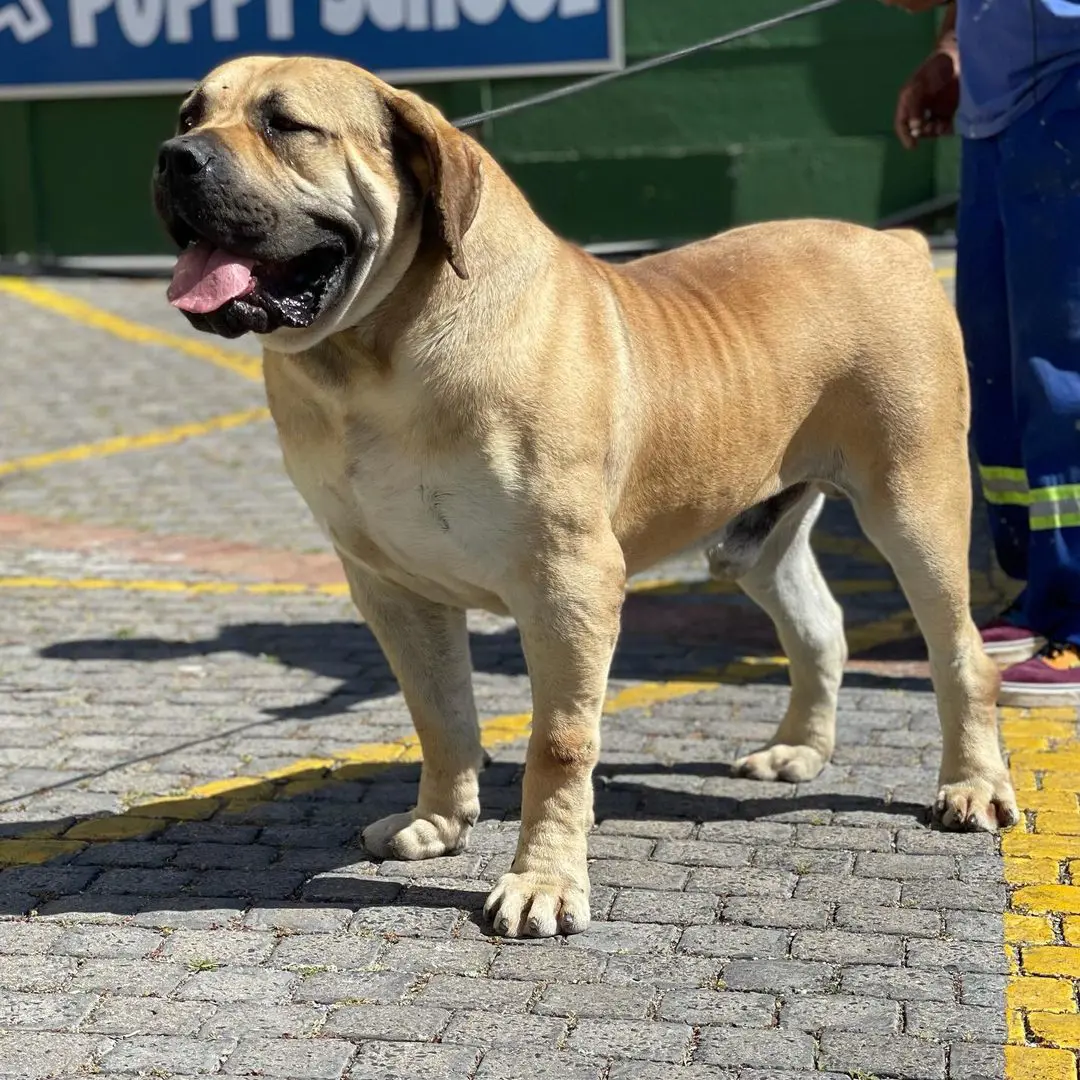
The Boerboel's coat is characterized by its short, dense texture, adhering closely to the body, providing a sleek and weather-resistant covering. Boerboels come in various coat colors, with brindle (a pattern of dark stripes on a lighter background), fawn (a solid tan hue), and red being common.
Except for the above-mentioned unique physical traits, Boerboels have medium-sized, V-shaped ears that are typically droopy and can be either rounded or slightly squared at the tips. Their eyes are medium-sized, round, and set wide apart. The eye color is usually brown, complementing the coat color.
Boerboels Have A Protective Personality
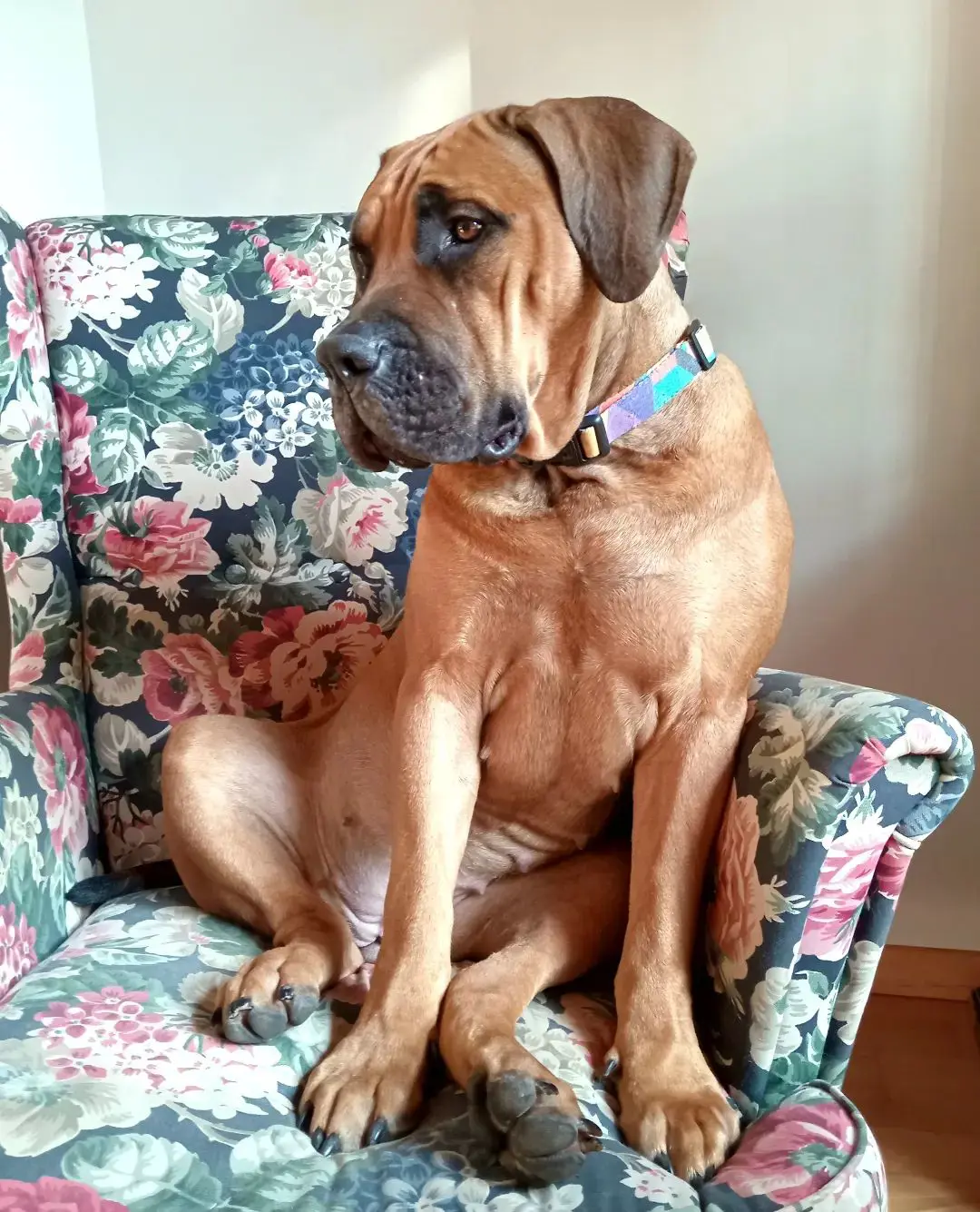
As natural guardians, Boerboels exhibit a strong protective instinct. They are known to be watchful and alert, making them excellent watchdogs. Their intimidating presence alone is often enough to deter potential threats. Other behavioral traits of Boerboels are listed below:
- Loyalty: Boerboels form strong bonds with their owners and are known to be deeply devoted to their families.
- Confidence: Boerboels carry themselves with confidence and self-assurance. Their bold and assertive demeanor is part of their protective nature, and it makes them reliable in guarding their homes and loved ones.
- Courage: Boerboels are known for their courage and fearlessness.
- Gentle with Family: Despite their imposing size and protective instincts, Boerboels are generally gentle and affectionate with their families.
- Kid Friendly: They often form close bonds with children and can be surprisingly gentle with them.
- Intelligence: Boerboels are intelligent dogs that can quickly learn commands and tasks.
- Independence: While being loyal to their families, Boerboels also possess a degree of independence. They are not overly clingy but rather maintain a sense of self-reliance, which adds to their confident and composed nature.
Are Boerboels Dangerous?
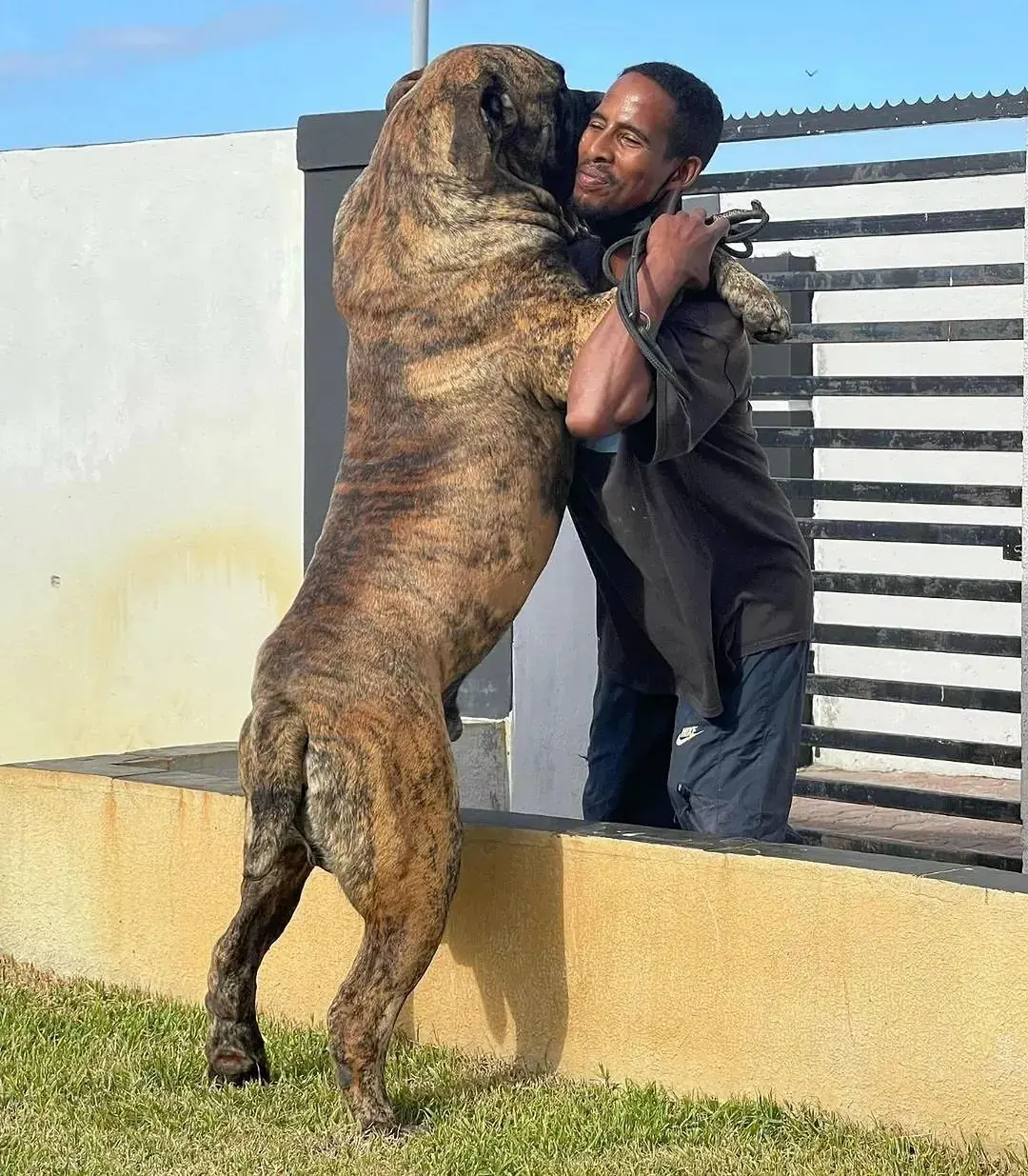
Boerboels are a large and powerful breed and may turn aggressive if not properly trained, socialized, and managed. It's essential to understand that aggression is a complex behavior and can result from a combination of genetic, environmental, and social factors. Here are some factors that may contribute to aggression in Boerboels:
- Genetics: The genetic makeup of a dog plays a significant role in its temperament. Boerboels, originally bred as guard dogs, may have inherited protective instincts. If the breeding practices do not prioritize stable temperaments, there is a risk of aggressive tendencies being passed down.
- Inadequate Training: A lack of consistent, positive training can contribute to behavioral issues in Boerboels. Dogs need clear boundaries, rules, and positive reinforcement to understand appropriate behavior. Inconsistent or harsh training methods may lead to anxiety or aggression.
- Lack of Socialization: Insufficient exposure to various people, animals, and environments during the critical socialization period (usually between 3 and 14 weeks of age) can contribute to fear-based aggression. Proper socialization helps a dog develop positive associations and confidence in different situations.
Fear and anxiety, territorial instincts, the owner's lack of guidance, or abusive behavior are other factors that may make Boerboels aggressive. It's crucial to note that aggression is not an inherent trait in all Boerboels, and many are affectionate, loyal, and well-behaved when raised in a positive and structured environment.
Taking Care Of Boerboel
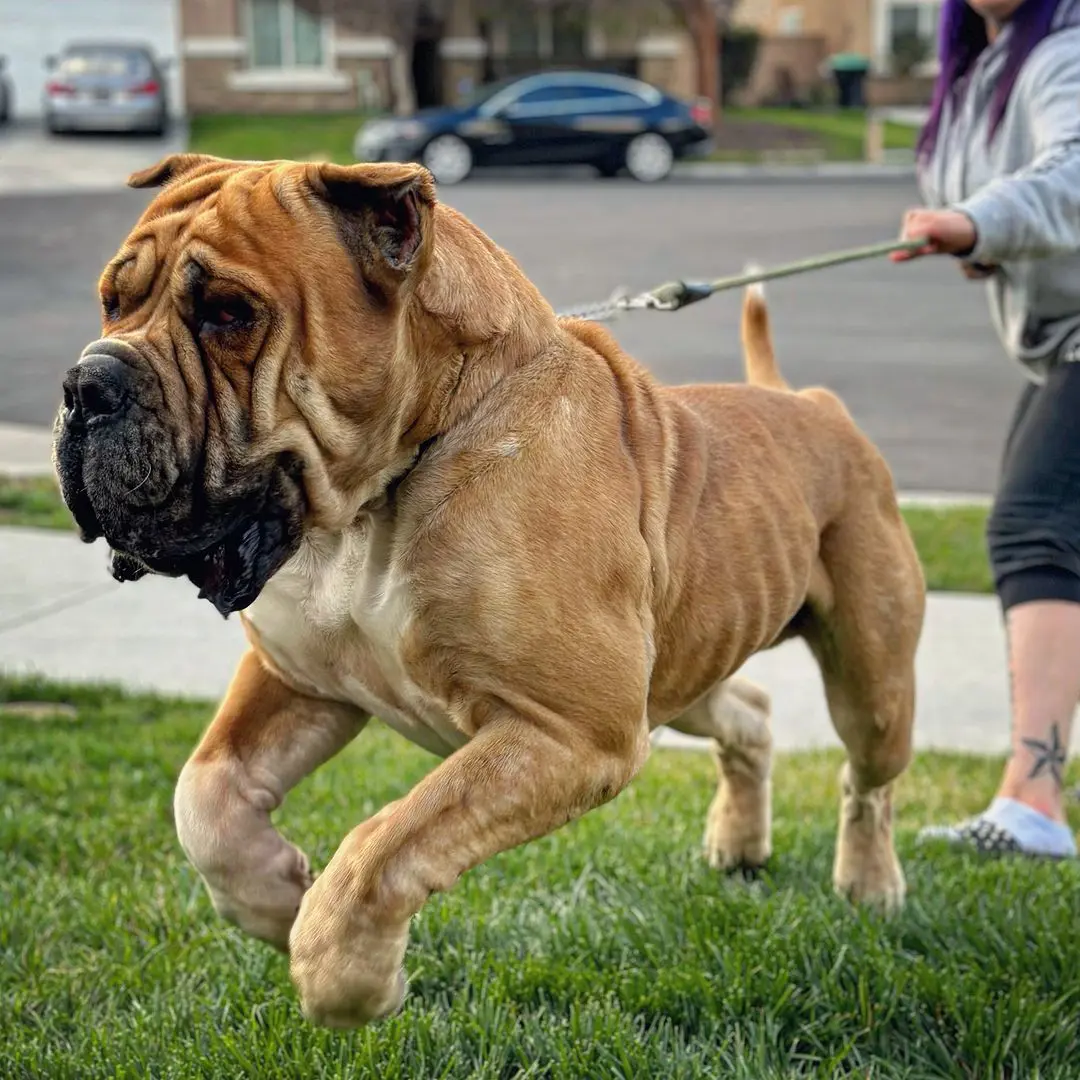
Taking care of Boerboels involves addressing their unique needs as a large and powerful breed. Here are some essential aspects to consider when caring for Boerboels:
- Grooming: Boerboels have a short, dense coat that requires minimal grooming. Regular brushing helps remove loose hair and keeps the coat healthy. Additionally, check ears, trim nails, and maintain dental hygiene.
- Nutritious Diet: Provide a balanced and high-quality diet suitable for large breeds. Consult with your veterinarian to determine the appropriate type and amount of food, considering factors such as age, weight, and activity level.
- Regular Exercise: Boerboels are energetic working dogs and require a significant amount of exercise to stay happy and healthy. Aim for at least 1.5 to 2 hours of exercise per day for adult Boerboels. This should be a combination of activities that challenge both their body and mind.
- Secure Fencing: Due to their size and strength, Boerboels need secure fencing to prevent wandering and ensure their safety.
- Regular Affection and Attention: Boerboels are known for their loyalty and desire for human companionship. Spend quality time with your dog, offer affection, and include them in family activities to strengthen the bond.
- Health Monitoring: Keep an eye on your Boerboel's weight and overall health. Obesity can be a concern in larger breeds, so monitor their diet and adjust accordingly. Schedule regular veterinary visits for health check-ups and vaccinations.
Health Issues Related To Boerboel
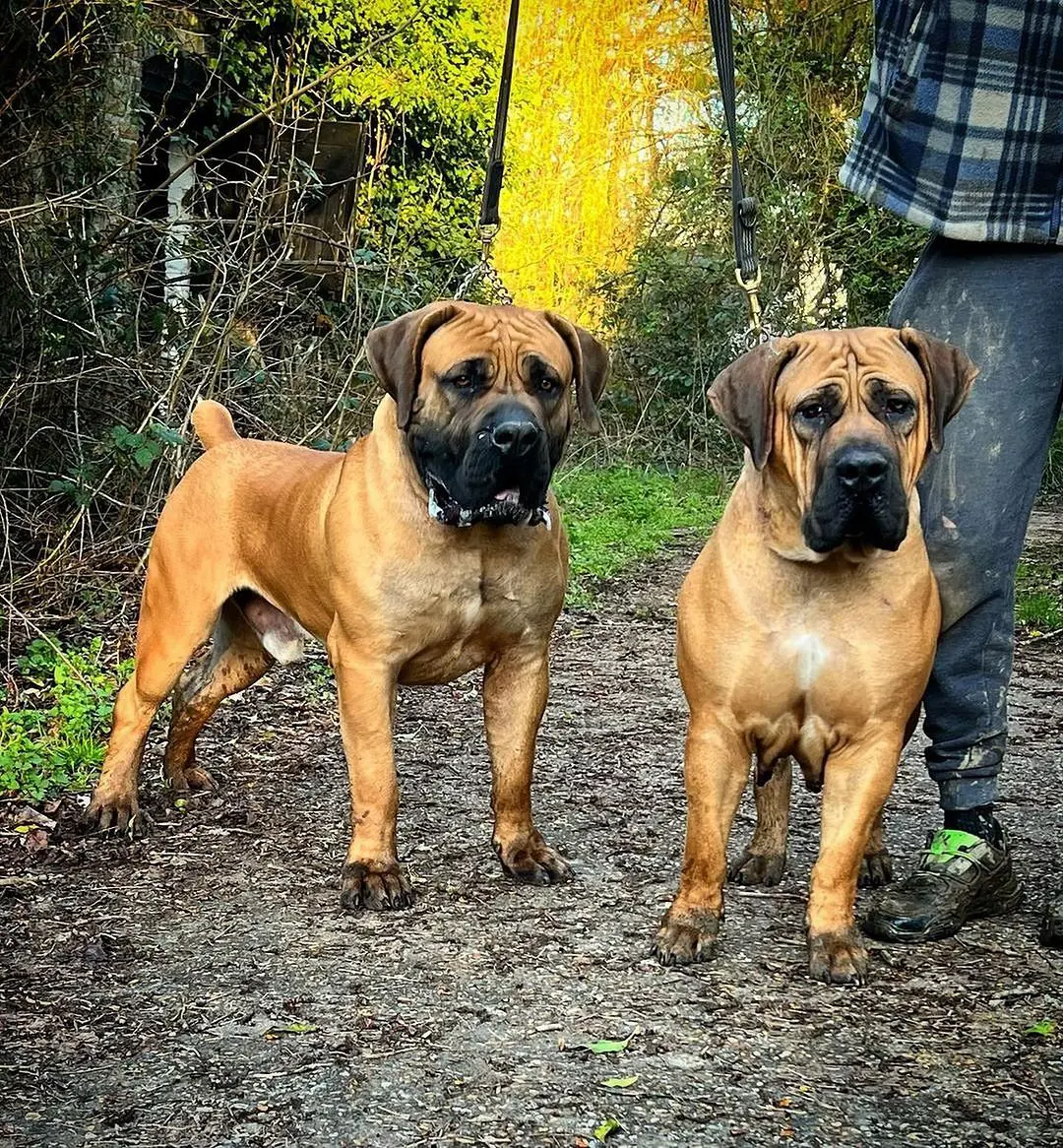
- Obesity: As a large and muscular breed, maintaining a healthy weight is crucial for Boerboel's overall well-being. Obesity can lead to various health problems, including joint issues, diabetes, cardiovascular issues, and a decreased lifespan.
- Patella Luxation/ Loose kneecap: It occurs when the patella (kneecap) dislocates or moves out of its normal position.
- Movement Problems: Arthritis, elbow and hip dysplasia and injuries may lead to movement problems.
- Focal Epilepsy: Focal epilepsy in Boerboels refers to a type of epilepsy where seizures originate in a specific area of the brain. Stress and anxiety can contribute to triggering seizures in some cases.
- Fear attacks: Fear attacks or episodes of heightened anxiety can be triggered by various factors, including unfamiliar environments, loud noises, new people, or traumatic experiences.
- Kinked Tail: A kinked tail refers to an abnormal bend or twist in the tail, often resulting from a genetic or developmental issue. In most cases, a kinked tail itself does not pose significant health problems for the dog.
- Spinal Problems: Spinal problems in Boerboels may arise due to a range of factors, including genetics, congenital anomalies, trauma, or degenerative conditions.
- Multifocal Retinopathy 1: An inherited eye disorder in South African Boerboels.
Life Expectancy Of Boerboels
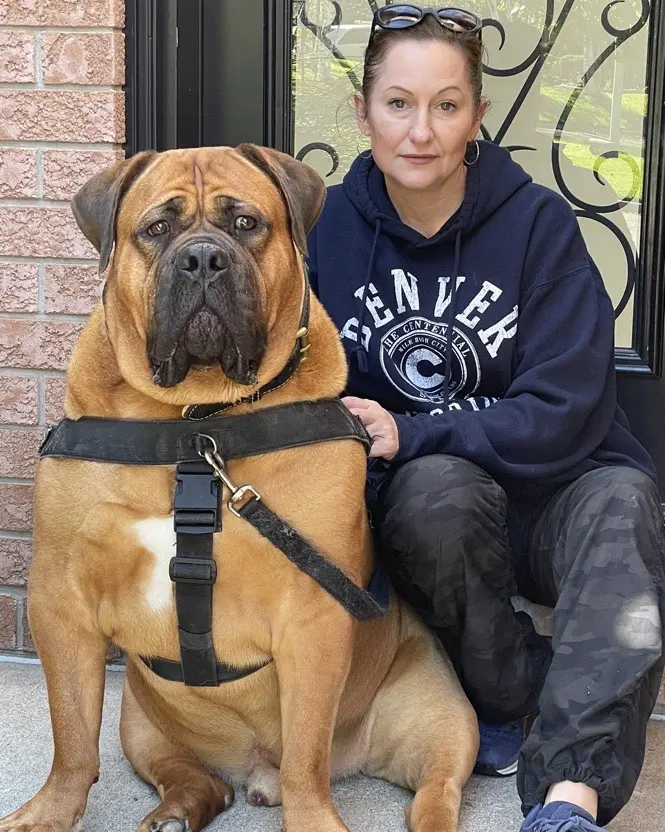
On average, Boerboels typically have a lifespan of around 9 to 11 years. However, some individuals may live longer with proper care and attention to their well-being. To promote a longer and healthier life for Boerboels, responsible pet ownership is essential. Regular veterinary check-ups, balanced nutrition, appropriate exercise, weight management, dental care, and preventive measures contribute to their overall well-being.
Where To Buy And Adopt A Boerboel?
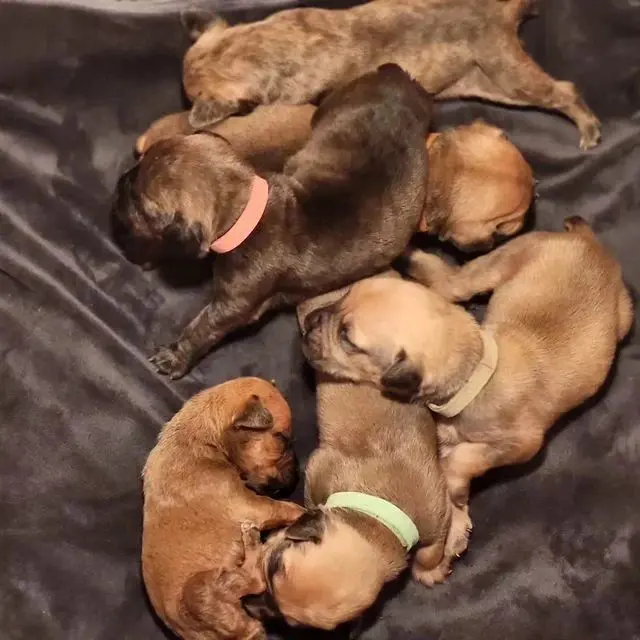
Boerboels are powerful dogs and not for everyone, so it's important to be sure you can handle the responsibility before buying one. If you're still interested, here are some places to start your search:
- Breeders: American Boerboel Club is the most genuine site where you can get directories of the breeders around you.
- Rescue Organizations: If you are looking for an adoption, there are plenty of rescue homes available. Rescue Me, Petfinder and Adopt-a-Pet are some reliable organizations to rehome a one.
Top Lists

